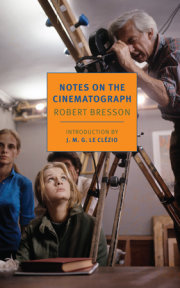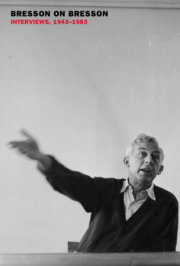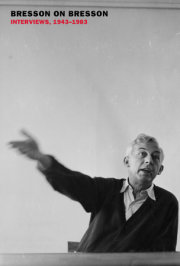Robert Bresson (1901–1999) was born in Bromont-Lamothe, France. He attended the Lycée Lakanal in Sceaux, and moved to Paris after graduation, hoping to become a painter. He directed a short comedy, Affaires publiques, in 1934, but his work was curtailed by the outbreak of World War II. He enlisted in the French army in 1939 and was captured in 1940, spending a year in a labor camp as a prisoner of war. After his release he returned to Paris and directed Angels of Sin (1943), his first full-length film, under the German occupation. Les dames du Bois de Boulogne followed in 1945, and in 1951 Diary of a Country Priest was met with widespread acclaim. His next film, A Man Escaped (1956), which follows the memoirs of André Devigny, a French Resistance leader incarcerated during World War II, became a hit. He made eleven more films over the next three decades, including Mouchette (adapted from the Georges Bernanos novel of the same name, published as an NYRB Classic); Au Hasard Balthazar; Pickpocket; Lancelot of the Lake; and L’Argent. Throughout his career Bresson eschewed the use of theatrical techniques and employed nonprofessional actors whom he referred to as models. Raised in the Catholic faith, he worked on and off throughout his career on an adaptation of the book of Genesis, which never saw fruition. He died in Droue-sur-Drouette at the age of ninety-eight.
Robert Bresson’s interviews, edited by Mylène Bresson, are collected in Bresson on Bresson, published by New York Review Books.
Jonathan Griffin (1906–1990) served as the director of BBC European Intelligence during World War II. Among the authors he has translated are Jean Giono, Fernando Pessoa, and Nikos Kazantzakis. A collection of Griffin’s poetry, In Earthlight, was published in 1995.
J.M.G. Le Clézio was born in Nice in 1940. He has written more than forty books, including works of fiction and memoir as well as collections of essays and books for children. In 2008 he was awarded the Nobel Prize in Literature.






